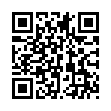|
Applied mathematics
Mathematical modeling of the deformation of composite plane with interface crack for John’s harmonic material
T. O. Domanskaya, V. M. Malkov, Yu. V. Malkova
St. Petersburg State University, 7–9, Universitetskaya nab., St. Petersburg,
199034, Russian Federation
Abstract:
The exact analytical solution of a nonlinear plane-strain problem for a bimaterial plane with an interface crack (cut) has been obtained. The plane is formed by joining of two half-planes made from different materials. Mechanical properties of half-planes are described with the model of a John's harmonic material. The application of this model has permitted using the methods of the complex functions in the nonlinear boundary value problems. As particular case, the problem is solved for the plane with a free interface crack at given constant nominal stresses at infinity. The expressions are obtained for nominal (Piola) stresses, Cauchy stresses and displacements. From the general solutions the asymptotic expansions of these functions have been constructed in vicinities of crack tips. In nonlinear problems of uniaxial extension of a plane with a free crack it is established that the formulas which give the crack disclosing and the stress intensity factors near the crack tips coincide completely with similar formulas derived from the equations of linear elasticity. The nominal stresses have root singularity at the tips of a crack; the Cauchy stresses have no singularity. Refs 16. Figs 3. Table 1.
Keywords:
bimaterial plane, plane-strain problem, method of complex functions, interface crack, John's harmonic material.
Received: May 11, 2017
Accepted: October 12, 2017
Citation:
T. O. Domanskaya, V. M. Malkov, Yu. V. Malkova, “Mathematical modeling of the deformation of composite plane with interface crack for John’s harmonic material”, Vestnik S.-Petersburg Univ. Ser. 10. Prikl. Mat. Inform. Prots. Upr., 13:4 (2017), 372–383
Linking options:
https://www.mathnet.ru/eng/vspui346 https://www.mathnet.ru/eng/vspui/v13/i4/p372
|

| Statistics & downloads: |
| Abstract page: | 127 | | Full-text PDF : | 24 | | References: | 32 | | First page: | 3 |
|




 Contact us:
Contact us: Terms of Use
Terms of Use
 Registration to the website
Registration to the website Logotypes
Logotypes








 Citation in format
Citation in format 